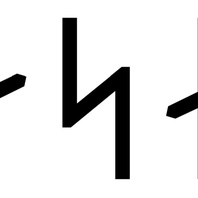
Viking Names
Asa
Ása was a common name throughout Scandinavia, including quite a few examples in Swedish and Danish runic inscriptions, but used fairly sparingly in Iceland. There are three examples in Domesday Book for Yorkshire. It is a short form for Old Norse names in Ás- from áss, óss ‘a god’.
Read More
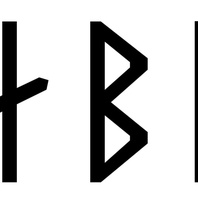
Viking Names
Api
Api is an original byname meaning ‘fool’. It is possibly found in the Norwegian place-name Apnes and there are a few instances in Old Danish, including perhaps, the runic forms abi and aba, although these forms may rather derive from Abbi or Æbbi. It is the first element in Apedale, North Yorkshire and Apethorpe, West Yorkshire.
Read More

Viking Names
Snip
The Old Norse byname Snípr may be related to Modern Norwegian snipa ‘miser, unsociable person’. A single instance is recorded in Norway in 1335. It is also the first element of the place-name Snibstone, Leicestershire.
Read More
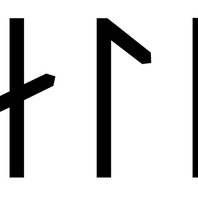
Viking Names
Ali/Alli
It is not possible to determine whether the names in Lincolnshire derive from Áli or Alli so all information for both names appears on this page. Áli is a diminutive name and occurs in Old West Scandinavia but it is not really frequent although it occurs as the first element of Norwegian place-names. It also appears in a few Danish place-names, but is not found in documents except for the Latin form Anulo. Alli is a short form of a compound name in Alf- or Al-. It does not occur independently in Old West Scandinavian but is found in a few Norwegian place-names. There are several instances in Old Danish including Latin Allo and a number of runic examples in both Denmark and Sweden. Áli or Alli is the first element of the place-names Aylesby, Althorpe, and Ailby in Lincolnshire.
Read More

Viking Names
Viking
The male name Víkingr is recorded in some eighteen Viking Age runic inscriptions from Denmark and Sweden, and there is evidence it was used in Norway in the Viking Age and even later. It probably derives from the appellative (common noun) víkingr, the meaning of which varies through time and in the different sources. In Lincolnshire, the place-name Wickenby is formed of either the name or the appellative plus Old Norse -by ‘farm, settlement’. In Leicestershire, the element is combined with Old English tun in Wigston Magna (while Wigston Parva has a quite different origin), and is thus a hybrid name. In this case, the parallels with other hybrid names suggest that the personal name is more likely than the appellative as the first element.
Read More

Viking Names
Gamal
Gamall originally a byname meaning ‘the old one’, is fairly frequent in Norway from the eleventh century onwards and is found in some Norwegian place-names. The name is also found in Sweden and Denmark. It is one of the most common Old Norse male personal names found in the Danelaw. Gamall is also the first element in Gamston, Nottinghamshire.
Read More
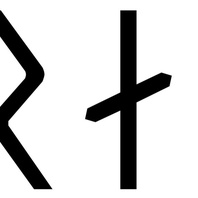
Viking Names
Grein
Grein is an original byname of which the interpretation is not certain. It is derived from Old Norse grein ‘branch’ or ‘reason’ or ‘distinction’ or ‘discernment’. There are some few late instances of the name recorded in West Scandinavia. It is also the first element in Grainsby, Lincolnshire.
Read More
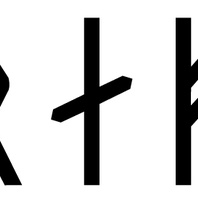
Viking Names
Hrafn
The Old Norse male name Hrafn is found throughout Scandinavia, but is particularly common in Iceland. It means ‘raven’ and belongs to a common group of male names which refer to animals, such as Arn ‘eagle’, Björn ‘bear’, Ulfr ‘wolf’. It is frequently compounded in personal names with other elements, as seen in the Old Norse personal name Hrafnkell, and others. When found in place-names, it is possible that it represents either the Old Norse common noun hrafn ‘raven’ or the Old English common noun hræfn ‘raven’, rather than a personal name. It may also represent a possible Old English personal name Hræfn. Hrafn is seen in the first element of the minor place name Ranskill in the Bassetlaw Wapentake of Nottinghamshire.
Read More
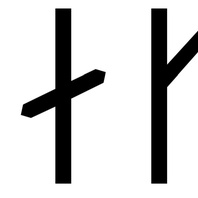
Viking Names
Haki
Haki was originally an Old Norse byname probably identical with Old Swedish and Modern Icelandic haki ‘chin’ possibly with some other meaning developed from this. Some instances of Haki as a personal name and a byname are recorded in Norway. It also appears in Denmark in South Jutland from the end of the 15th century, but it is found early in place-names throughout the country. It is only recorded as a personal name in Swedish runic inscriptions. The name also appears frequently in legendary history. Haki is believed to be the first element in the place-name Haxey, Lincolnshire. The name is also recorded in several medieval sources from Lincolnshire and Yorkshire.
Read More

Viking Names
Legg
An original byname, Leggr ‘leg-bone, leg’ appears first in Norway as a byname and is borne by one of the original settlers in Iceland, but is found as a personal name in West Scandinavia. Leggr is the first element of the place name Legsby, Lincolnshire.
Read More
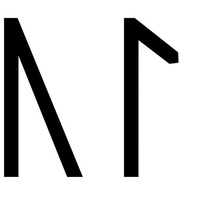
Viking Names
Kol
Kolr is a common male personal name in Norway and Iceland. It is probably related to the Old Norse noun kol ‘coal’ and is attested as the first element in the hybrid name Colston (Bassett) and (Car) Colston in Nottinghamshire. It is also attested as the first element in other Old Norse names, such as Kolbeinn.
